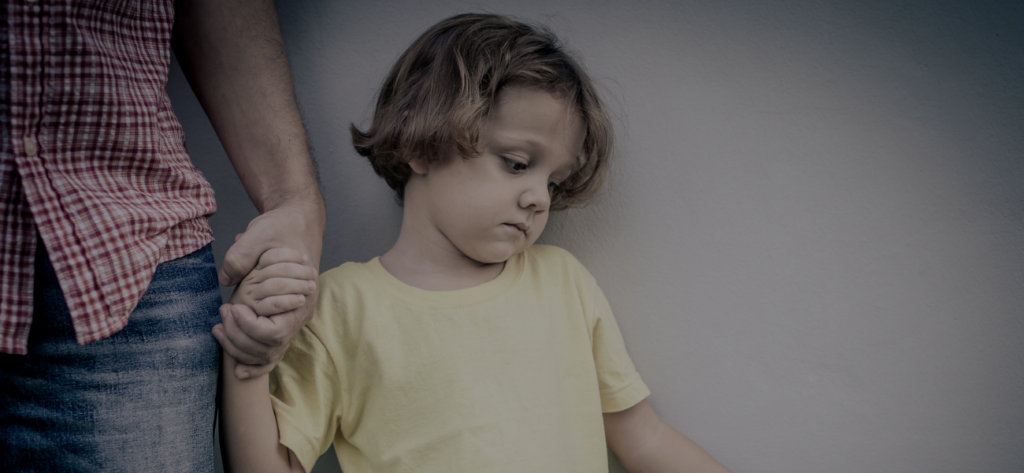A traumatic experience can leave a person with long-lasting effects, be it physical, mental or emotion scars. We’ve talked about how you can put a traumatic experience behind you on the blog in the past, but what about treating PTSD in children? How can we help kids understand and get past a traumatic event, especially when it occurs during a crucial time in a person’s life? Today, we explain how you can help your child cope with a traumatic event, like a car accident.
Two Pronged Approach
Helping kids after an accident needs to be a multi-faced approach. It begins in the hospital, where doctors and nurses talk to the kids and try to ease their anxiety. This is a crucial time for parents to work with physicians to develop a therapy plan. Hospitals can generally recommend child psychologists or therapists which can help a child express their thoughts and feelings after an accident.

Also, if your child needs physical therapy, it’s important for parents to be involved in this process. Attend the therapy sessions with them, and work on some rehab exercises with them at home. Your kid may get discouraged by their inability to preform certain tasks or their lack of quick progress, but it’s your job as a parent to stay positive and encourage them to keep at it. If children stick with their physical therapy, they’ll begin to notice more progress, which can help with mental stress and anxiety after a crash.
Websites Can Help Too
There are also outlets that can help kids cope after they get home. A solid support group of family and friends is great, but new research also shows that the Internet can help children who’ve experienced extreme trauma.
The study found that an Accident Website can help give children more information, develop coping skills and practice resiliency strategies after a car accident. When compared to children who had just received information at the hospital, researchers uncovered that information from trusted websites had a significant effect on children who showed a high level of initial distress after an accident.
“You can imagine how traumatizing it is to a child when they have been injured in an event like a car accident,” said professor Justin Kenardy, who led the study. “We were surprised to see how significantly these tools helped to reduce trauma symptoms in children who had been hospitalized and had high levels of distress.”
So if your child is having difficulty processing a traumatic traffic crash, give them multiple channels of support. Help them at the hospital, during therapy and at home.
- How To Protect Your Spine On The Golf Course - April 2, 2025
- Beyond Pain Relief – 4 Additional Benefits Of Physical Therapy - March 31, 2025
- Why The McKenzie Method Can Be So Effective For Treating Back Pain - March 26, 2025
